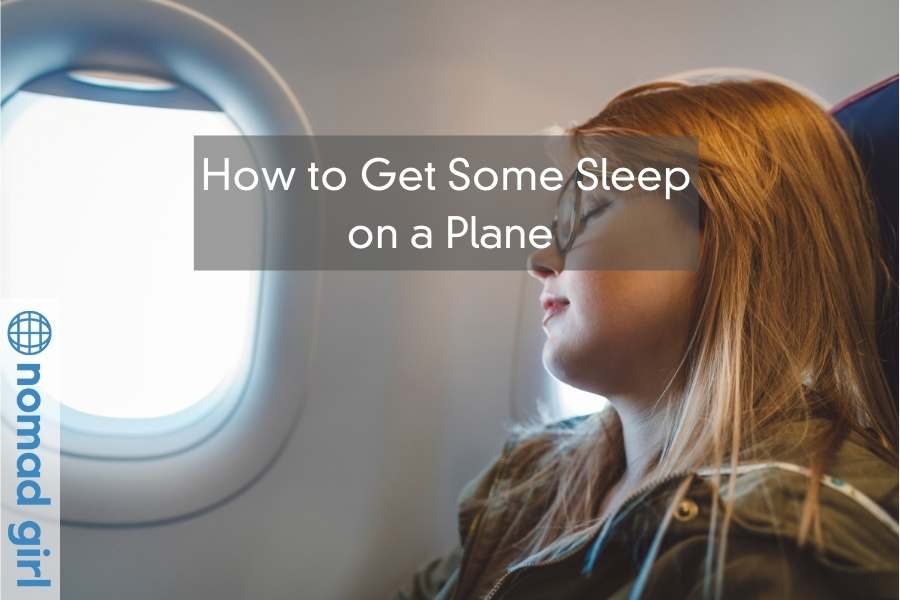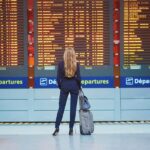Plane travel is more popular than ever. In an age of international business and budget airlines, most of us take to the air on at least a semi-regular basis. For some of us, plane travel can even become part of our commute. If you are travelling for a few hours once in a blue moon to catch a bit of sunshine, sleep may not be your priority. However, if you are doing it twice a week for business meetings or making long haul journeys with connecting flights, getting some sleep can be a priority.
Intending to get a bit of sleep on a plane is all well and good. If you’re travelling overnight for instance, with an itinerary for the next day, you can even consider it essential. Planes are not an environment that is conducive to getting your head down, and unless you’re in business class or first class it can be near impossible. Even people with the luxury of a pod in first class can find sleep challenging when up in the air. Fortunately, there are both techniques and products which can make sleep far more likely.
1. Get a Window Seat
Even if you are travelling in economy class, early bookers can grab themselves a window seat. This is not for the purpose of having a view, but for having the one seat on a plain where you can rest your head against something and not be scared of waking up on the businessman in the seat next to you. You might assume that window seats are in high demand, but plenty of people are scared of flying and would rather sit on the aisle. Either that or they’re not bothered enough to go to the airline and request a window seat.
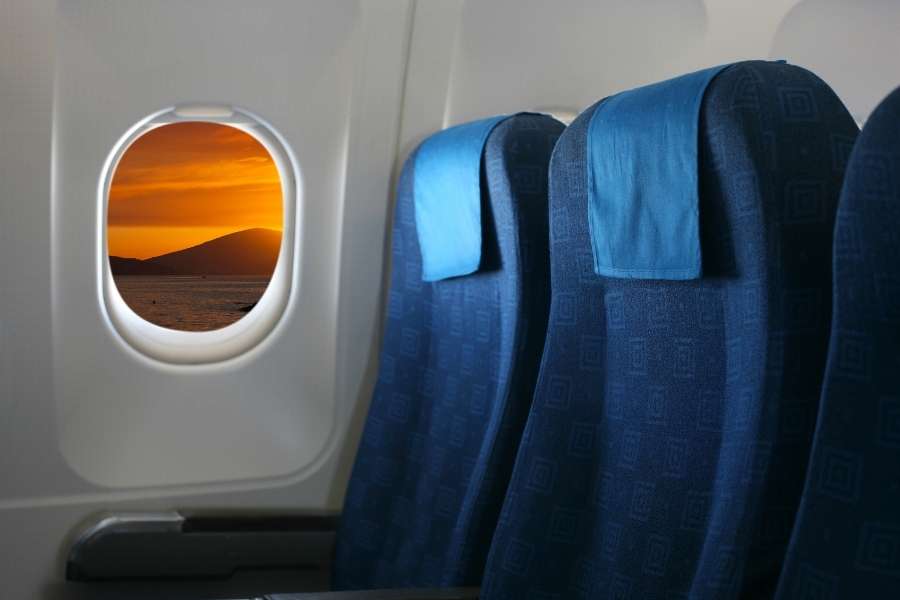
2. Use a Neck Pillow
Whether you end up sitting on the window or not, neck pillows can be a godsend. I used to be firmly against using one and was nothing short of embarrassed when I finally tried a blow-up neck pillow on a long-haul flight, but now I won’t go without it. It isn’t so much the feeling of having something comfortable against your head, but the fact that a neck pillow offers support and means your head can at least be held in one comfy position. Not only will this greatly increase the chances of shuteye, but it can also go a long way to ensuring you don’t have aches and pains once you wake up.
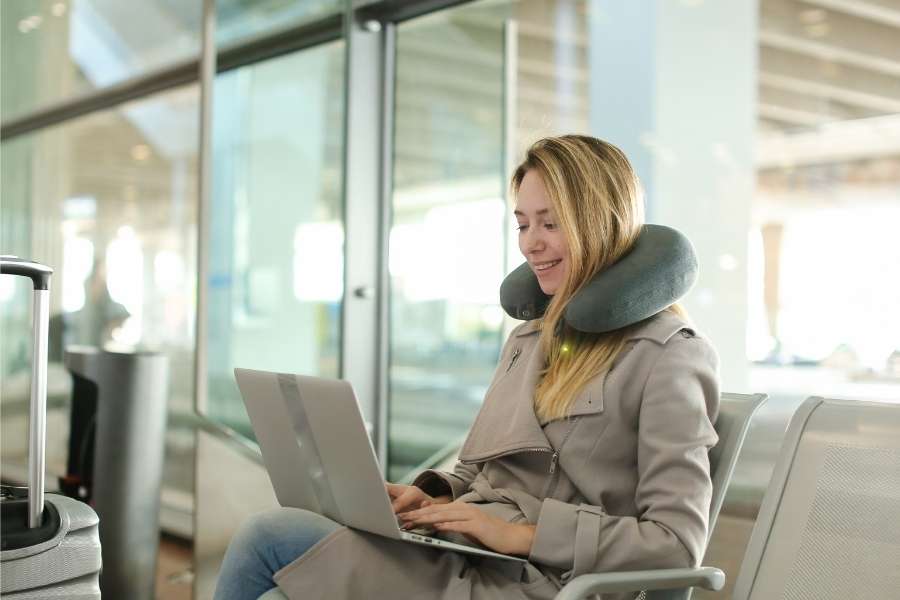
3. Wear Comfortable Clothes (Even if it Doesn’t Seem Possible)
It sounds like the most basic piece of advice we could give you. When you see people in an airport they tend to be wearing sweatpants or leggings and a baggy t-shirt. If you’re away on business though, you may not want to take these kinds of clothes with you.
It’s tempting to think that you’ll get tired enough to sleep, even in jeans or a smart shirt. Make a point of taking comfy clothes, even if it means putting a more suitable ‘sleep’ outfit in your carry-on luggage. You don’t have to take full pyjamas and risk getting funny looks in order to travel in comfort.
4. Be Organized
Whether you are an anxious person or not, travelling is a stressful experience. We’ve all laid awake at night because there is something worrying us and all the challenging aspects of travel can make it difficult to shut off. “Have I got all my paperwork?”, “Did I remember to turn everything off at home?”, “How do I get to my hotel?”.
These sorts of questions running through your head will not send you to the land of nod. By being as organized as possible with your paperwork, leaving plenty of time for everything you need to get done and having a clear plan of what you are doing before and after your flight means you won’t have to fret about it.
5. Eat and Drink The Right Things
We naturally bloat on planes and eating a fatty meal and sinking a few beers isn’t likely to help that! A light meal with just water to drink is best. Whatever you do, avoid caffeine and avoid alcohol. It can seem like a great idea to have a drink to make you sleepy, but the initial drowsy feeling won’t last, and after a few hours you’re more likely to feel restless or dehydrated.
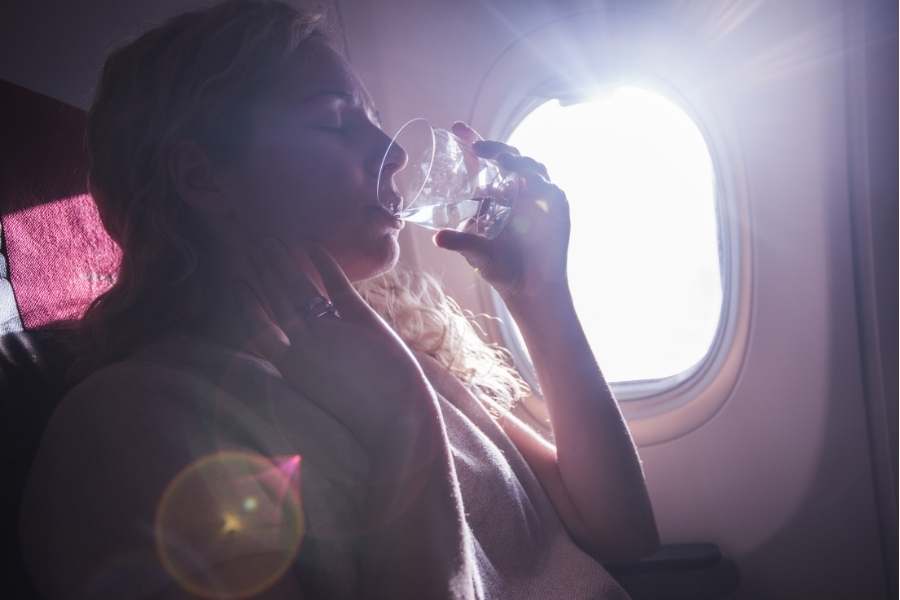
6. Block Out the World
Being on a plane always throws you off. Your body won’t feel exactly right, and it certainly won’t be sending your brain signals that it is time for rest. Luckily, you can do things to take your mindset out of the travel scenario. Eye masks are nothing short of essential for this, even if it is a night flight and the lights aren’t on, you never know when your neighbour will start watching a film on an iPad or switch on a reading light.
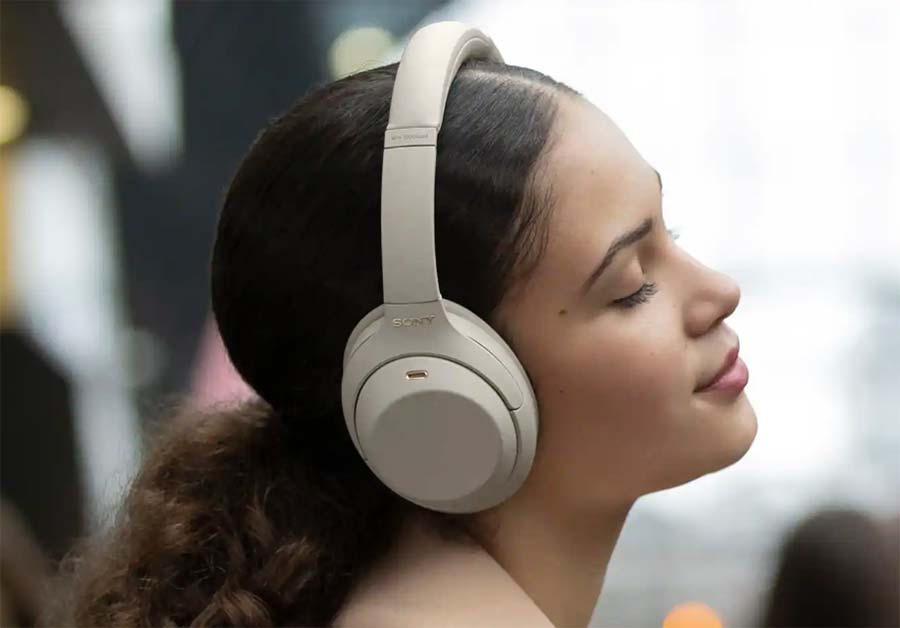
Noise-cancelling headphones
It may help you to listen to music, in which case you can plug in some headphones and switch off. Even if music isn’t your preference for getting to sleep, it is worth having some noise-cancelling headphones just to block out what is happening around you. Not only will this help you to avoid noise of the babies crying behind you, but it will also make it a bit easier to try and forget you are on a plane at all.
7. Don’t Rely on Sleep
Putting more pressure on yourself to get a good sleep on a plane is not going to help. Trying to sleep is almost a paradoxical concept. You have to put your brain and body in a position where they are most likely to sleep and then let it happen naturally.
We’ve all sat at home and played games with ourselves and our alarm clock. Telling yourself that “if you get to sleep now you can still get a few hours” will not help. It can do the opposite. A phrase that has become popular is sleep debt. This basically means that you can borrow sleep from other nights.
If you’re lucky enough to be going on a beach holiday, don’t put pressure on your sleep, and remind yourself that your alarm won’t be waking you up and that you can always grab a siesta! Travelling for business? This can be more difficult, but being sensible with the nights leading up to your travel can make sure that the pressure is off once you’re in your seat.
Conclusion
It is worth doing all you can to get some sleep on a plane. There is a skill to it, and it is one you can work on, especially if you’re a regular traveller. At the very least, doing the basics like wearing the right clothes, putting on an eye mask and not having a spicy meal before you get on the plane is essential to stand any chance.
Unless you’re on a 24-hour long flight around the world, any sleep you get on a plane should be looked at as a bonus, as long as you’re resting, you should be able to make up for any sleep lost in other ways.


